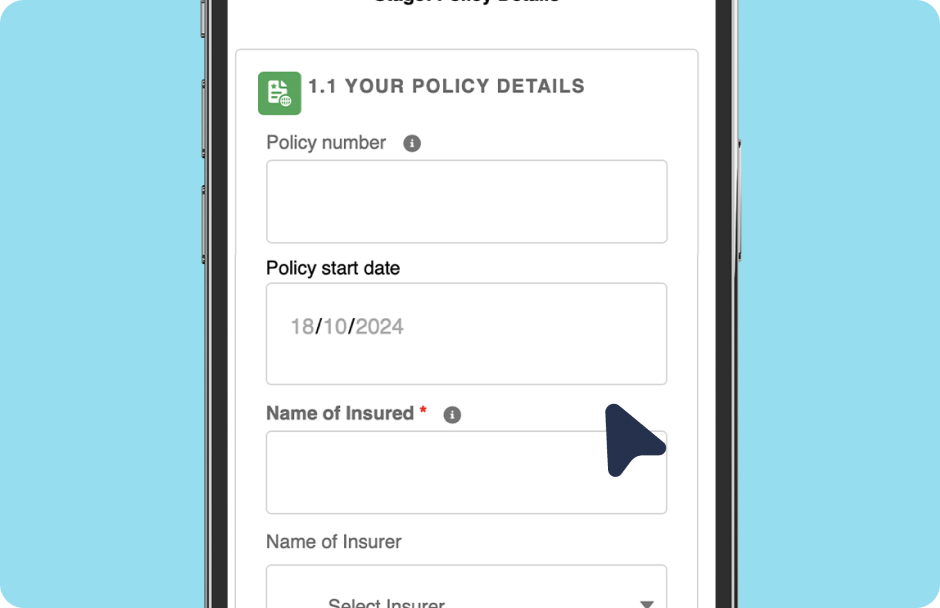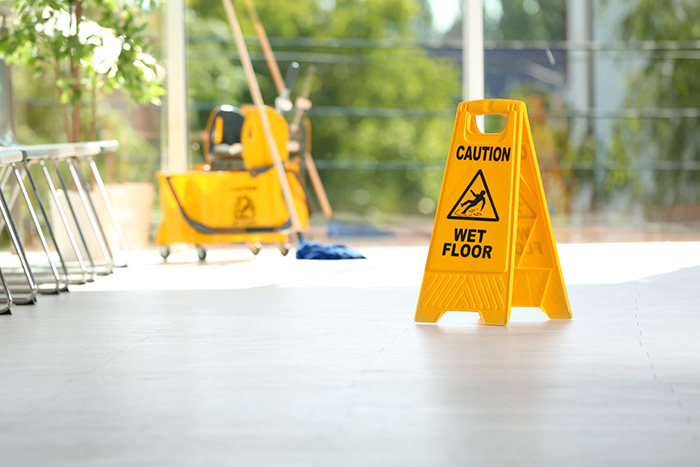Compare quotes from our trusted insurance partners:
On this page:
What is self-employed insurance?
There are around 2.2 million self-employed people in Australia, which shows how many Australian enjoy being their own boss. You set your own hours, choose who you work with, and call the shots. How great is that?
Of course, being self-employed might not feel so great when things don’t go to plan. The impact of accidents, mistakes, natural disasters and other unexpected events may land completely on your shoulders.
That’s where business insurance comes into play. Having the right business insurance can help you manage the costs of different risks, ensuring your business can continue smoothly despite unforeseen events.
You may also be required by law to have some types of business insurance if you work in certain industries or occupations. Clients and commercial landlords may also require specific policies and amounts of cover to work with them

Why do self-employed need insurance?
Self-employed individuals may need business insurance to meet legal or contractual obligations, and cover unexpected bills
Enter a jobsite.
Work as a contractor or sub-contractor
Enhance their credibility
Pay legal costs if you face a liability claim
Who needs self-employed insurance?
Business insurance is essential for many types of self-employed businesses, including consultants, engineers, cleaners and many more, like:
What types of insurance do self-employed individuals need?
We offer a range of policies designed to cover your business, tools and services. Build an insurance package that suits your needs and buy in minutes.
Popular cover types for business owners:
Business owners could also consider:
Let’s cover your small business on the go
Start a quote to see how much you can save and buy online in minutes.
How much does business insurance for the self-employed cost?
The average cost of business insurance for business owners is $41 per month* with BizCover. However, the cost of your policies will depend on different factors, such as the services you provide and the size of your business.

How is the cost of insurance calculated?
Risks of the industry
Cover level amount
Annual turnover
Number of Employees
Claims History
Customer Average Monthly Payment Report is based on 1 July 2023 to 30 June 2024 and presented as a guide only. It may not reflect pricing for your particular business, as individual criteria will apply.
Get cover that works with the risks of your business
Select different cover amounts for each policy listed below.
This is the most you will be paid out if you need to make a claim.
Unsure how much to choose? Think about:
Underinsurance
We know it’s tempting to select a lower level of cover to reduce premiums, but this can leave businesses shocked and insufficiently covered when making a claim.
Ways underinsurance catches business owners out:
Inflation
With inflation, the cost of living and doing business increases. Remember to cover you, your tools and assets for the rising costs of replacing or covering them, not what you paid for them – you may be surprised at the difference.
Not covering the full cost of your risks
If you select cover levels for less than the value you may be found liable – left out of pocket when it comes to claims time. It’s important to review your risks and determine how much you will need to cover any claim that may come your way.

Factors influencing cost
Risk of the industry
Cover level amount
Annual turnover
Number of employees
Claims history
Customer Average Monthly Payment Report is based on 1 July 2023 to 30 June 2024 and presented as a guide only. It may not reflect pricing for your particular business, as individual criteria will apply.
Get cover that works with the risks of your business
Select different cover amounts for each policy listed below.
This is the most you will be paid out if you need to make a claim.
Unsure how much to choose? Think about:
Statutory professional requirements
Cover required by contracts
Number of employees being covered
Your contract value
Worst case scenario claim size
Underinsurance
We know it’s tempting to select a lower level of cover to reduce premiums, but this can leave businesses shocked and insufficiently covered when making a claim.
Ways underinsurance catches business owners out:
Inflation
With inflation, the cost of living and doing business increases. Remember to cover you, your tools and assets for the rising costs of replacing or covering them, not what you paid for them – you may be surprised at the difference.
Not covering the full cost of your risks
If you select cover levels for less than the value you may be found liable – left out of pocket when it comes to claims time. It’s important to review your risks and determine how much you will need to cover any claim that may come your way.
How it works – buying online
5 easy steps to get instant cover online today

Select Profession
Pick Your Covers
Add Business Details
Compare Quotes
Get Covered Online
How to make a claim online
We’ll assist you through the claims process & manage the claim directly with the insurer.

Let us know Fill out our
claims form and provide info
to support the claim
Receive extra support We
will assist you with your claim
Claim results We will notify
you of the claim outcome.



Award-Winning Tech & People
We’re not ones to blow our own trumpet, but we are pretty proud of our innovative insurance platform, outstanding team, and stellar workplace.
See how much others have saved while purchasing policy through BizCover
^ Savings made from January 2024 to April 2025. This information is provided as a guide only and may not reflect pricing for your particular business, as individual underwriting criteria will apply.
Frequently Asked Questions
You might want to consider insurance if you are:
- Newly self-employed
- An established business owner
- An independent contractor
- Operating as a sole trader
No matter what occupation or trade you’re a part of, BizCover can help you find and compare policies designed for self-employed small business owners!
The type of insurance policies a self-employed business owner needs may vary according to the profession and the industry they operate in. That said, here are some policies self-employed people usually consider to protect their business:
- Public Liability insurance: Public Liability insurance is designed to provide protection for you and your business in the event a customer, supplier or a member of the public is injured or sustains property damage as a result of your negligent business activities.
- Professional Indemnity insurance: This business insurance covers losses claimed by a third party and defence costs due to alleged or actual negligence in your work. Some industries have mandatory insurance requirements, set either by law or by professional bodies and associations. You may be required to hold a minimum level of Professional Indemnity coverage to work in specific industries within Australia.
- Business Insurance: Business Insurance is a bundled insurance package that can provide cover for your business assets including, its premises, contents, stock and in the event of business interruptions. A Business Insurance package can be customised to include only the protections your business needs. You might consider coverage for tax audits, insuring your tools and equipment, protecting your premises against theft, and other parts of your small business.
- Personal Accident & Illness insurance: This policy covers you for loss of income if you were unable to work because of an injury or illness, even if you are harmed or fall ill at home, on holiday, or outside of your work.
A Business Insurance Pack is an easy, convenient way for butcher shop owners to protect their business property, stock and assets.
Business Insurance can be tailored to suit your business needs. Popular cover options for butcher shops include Contents, Glass, Theft, Money, Machinery Breakdown, Business Interruption and more.
Working in a butcher shop means you rely on your body to be physically fit for the job. Personal Accident and Illness insurance can provide levels of cover for loss of income, permanent disablement and even death if you are unable to work as a result of an injury or illness (even if it occurs outside of your employment).














Real-life customer reviews verified by Feefo